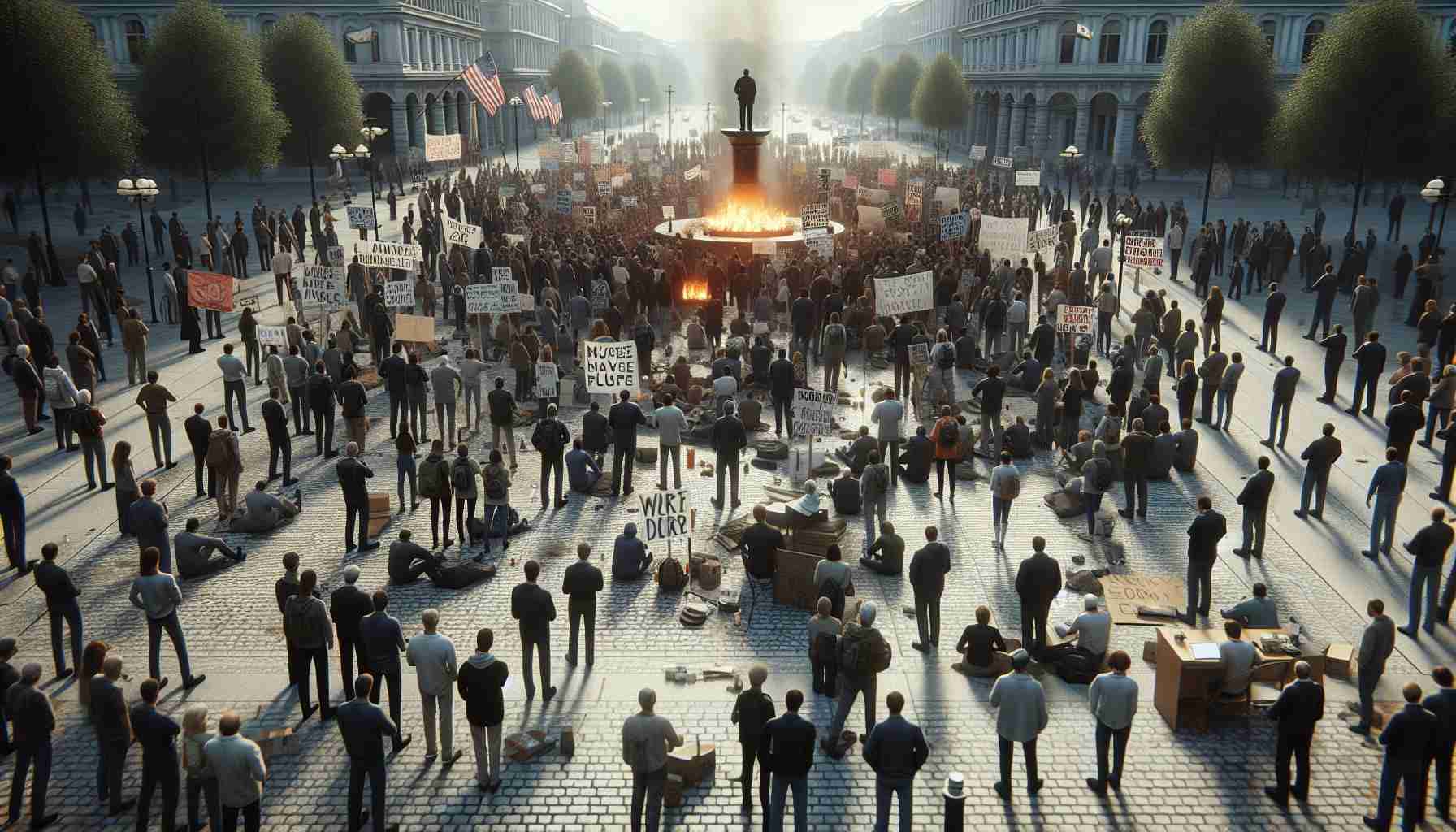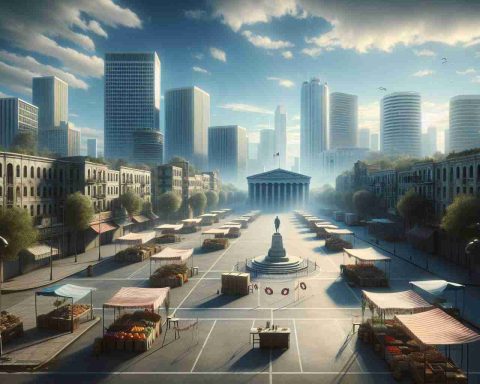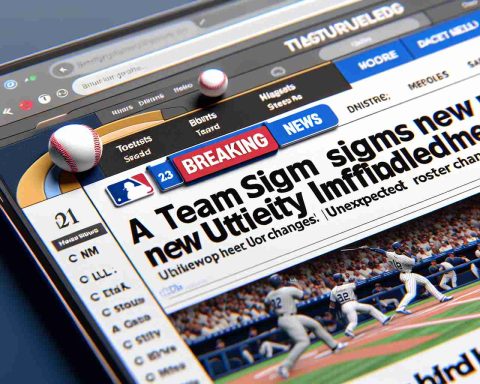In Israel, a general strike was triggered by the tragic killings of six Israeli hostages by Hamas, a situation that has further raised tensions surrounding Prime Minister Benjamin Netanyahu’s controversial military approach towards Gaza. This offensive has resulted in over 40,000 Palestinian casualties without securing the release of any additional hostages since their abduction on October 7.
The strike, organized by the nation’s largest labor union, was initially met with a mixed response and was quickly halted by a court ruling. The court stated that the underlying motive for the strike was political, which overshadowed the declared aim of facilitating negotiations for the hostages’ release. Critics argue that it is impossible to separate opposition to Netanyahu from the broader critique of his military strategies, which have plunged the nation into ongoing conflict.
Amidst growing international condemnation regarding human rights violations in Gaza and the West Bank, Netanyahu faces increasing pressure from within Israel. Protests against his governance have been a regular occurrence, even prior to the recent escalation of violence. While the conflict may have diverted attention from his legal troubles and boosted his popularity, many citizens demand an immediate ceasefire.
Despite the likelihood of losing support, Netanyahu’s administration remains largely unresponsive to internal dissent and external warnings, leading to continued humanitarian crises in the region. As the situation escalates, the gulf between governmental actions and public sentiment appears to widen.
The recent general strike in Israel, sparked by the tragic killings of six Israeli hostages by Hamas, has underscored the growing discontent among citizens towards Prime Minister Benjamin Netanyahu’s administration and its military policies. The incident has not only heightened tensions in the region but has also revealed broader questions about the efficacy of the current approach to the ongoing conflict.
One critical question emerging from this strike is: What are the implications of continued military action on Israeli society and politics? As protests gain momentum, there are increasing concerns about the implications for national security and unity. Many citizens believe that an alternative approach is necessary to balance security concerns with humanitarian needs.
Key challenges associated with this discourse include balancing national security with humanitarian considerations. The conflict has led to an overwhelming number of casualties, with estimates suggesting over 40,000 Palestinians have perished since the onset of intensified military operations. The humanitarian crisis in Gaza continues to receive significant international scrutiny, raising the question of ethical governance and the responsibilities of leadership in conflict situations.
Another significant controversy revolves around the judicial system’s role in moderating protests and strikes related to political issues. The court’s decision to halt the strike based on its political motivations raises questions about the balance of power between the government and the judiciary, as well as the rights of citizens to protest government actions that they find objectionable.
There are numerous advantages and disadvantages to the current situation. On the one hand, a strong military response may establish a perception of security and control, potentially deterring future attacks. However, the sustained military actions lead to rising civilian casualties and unrest, which could foster long-term instability. Additionally, the strain on international relations, particularly with nations sympathetic to Palestinian rights, complicates Israel’s geopolitical standing.
What are some potential pathways for resolution? Efforts towards negotiations for hostage release and an eventual ceasefire could alleviate some immediate pressures. Diplomatic engagement, perhaps mediated by international forces, could provide a framework for addressing both Israeli security concerns and Palestinian rights.
In conclusion, as protests continue and calls for change grow louder, Netanyahu’s government faces a critical juncture. It must navigate complex challenges while addressing the aspirations of its citizens for peace and security. The road ahead will require careful consideration of both military strategies and humanitarian implications to promote a sustainable solution in this protracted conflict.
For more on the situation in Israel and Gaza, you may visit Haaretz, a reputable source for in-depth news and analysis.












